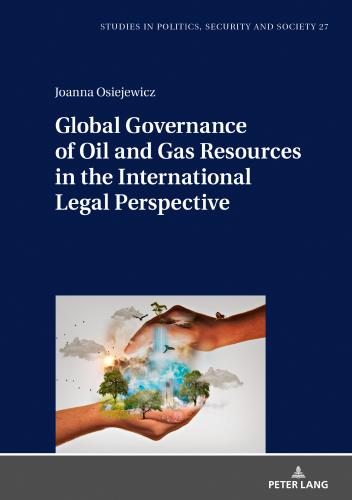2.2 Principle of permanent sovereignty over natural resources as a source of international law
Article 38 of the Statute of the International Court of Justice (ICJ) provides a list of sources of international law, indicating that the rules and principles of international law should come from: international conventions, both general and particular, establishing rules expressly recognized by the contesting states; international custom as proof of the existence of a common practice adopted as law; general principles of law recognized by civilized nations; and – subject to the provisions of Article 59 – judicial decisions and teachings of the most highly qualified publicists of the various nations, as subsidiary means for the determination of the rules of law.88
Due to their high degree of abstractness, principles are considered to be very useful instruments for flexible adaptation to new situations and trends, which contributes to the gradual development of international law.89 In order to determine whether the principle of permanent sovereignty over natural resources is a source of international law, the question whether or not it is generally recognized in the light of international law must be answered. This can be determined by referring to the case law of international courts and tribunals, and to the resolutions of international organizations.90 In particular, it should be taken into account that regulations of international law naturally evolve over time as a result of the elusive process of adaptation and change. Consequently, it should be considered whether this principle also changes over time or whether it has a feature of permanent validity.
The term “natural resources” was used in the report of the World Trade Organization on the subject of natural resources trade (2010) and narrowly defined as “stocks of materials that exist in the natural environment that are both scarce and economically useful in production or consumption, either in their raw state or after a minimal amount of processing”.91 Similarly, Article 56 (1) of the Havana Charter establishing the International Trade Organization (1948)92 contains a relatively narrow definition of the term “primary commodity”, which means “any product of farm, forest or fishery or any mineral, in its natural form or which has undergone such processing as is customarily required to prepare it for marketing in substantial volume in international trade”. Therefore, the term “resources” in the widest sense would include all measures facilitating or enabling the satisfaction of human needs, tangible and intangible goods, signifying an extremely wide range of production factors, such as: people, products, land, capital; factors for creating well-being, such as trade or investment, living and non-living resources (environmental resources such as clean air, raw materials, energy, goods, microprocessors), social regulation resources, such as legal systems, transport infrastructure, education systems, healthcare systems, welfare systems characteristics of natural persons, such as skills, talents, adaptive abilities, and even human creativity.93
It is legitimate to ask who is entitled and equipped with the legal capacity to freely dispose of natural resources. It is impossible to separate the discussion on the right to permanent sovereignty from the general discussion on the subjects of international law, especially as international law gradually expands the circle of subjects.94 Although states are still the main subjects of international law, they are no longer its only subjects. In international law, the term “nation” is often used as a synonym for the term “state”, “nation state”, or “country”.95 Although the use of the notion of statehood in individual cases is often controversial, the term “state” has a fairly well-defined meaning.96 The UN resolutions often refer to the so-called “undeveloped countries”, and after 1960 to the so-called “developing countries”. Doctrine further categorizes these concepts.97 Since the debate on permanent sovereignty, it has become obvious that these are the general terms covering all African countries (except for South Africa before 1994), Asia (with the exception of Japan), and Latin America, and some European countries such as Albania, Cyprus, and Malta.98 The Vienna conventions on succession99 introduced an additional sub-category of “newly independent states”, stating that agreements between the state’s predecessor and the newly independent state cannot violate the principle of permanent sovereignty of any nations. The term “newly independent state” is defined as the successor state, within whose territory a dependent territory was located directly before the date of succession, and for whose international relations the state-antecedents were responsible.100 In the Compensation Advisory Opinion (1949), the International Court of Justice stated that the UN is an “international person” and a “subject of international law capable of possessing rights and duties”.101 Later, other intergovernmental organizations were treated in a similar way. The circle expanded even further due to legal changes related to the principle of self-determination of nations and human rights, which granted nations and individuals rights and obligations under international law. Transnational corporations obtained a limited, functional international personality.102 This is evidenced by a number of international legal documents, i.e.: procedures provided for in the World Bank Convention on the International Settlement of Investment Disputes between States and Nationals of Other States;103 the provisions of the World Bank Convention Establishing the Multilateral Investment Guarantee Agency (MIGA) that allow MIGA subrogation to such rights or claims related to guaranteed investments that the beneficiary of the guarantee may report to the host state and
